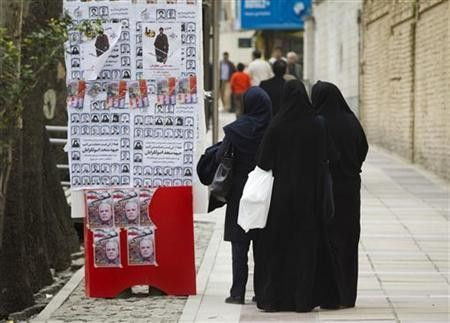Iran Elections: Polling Starts, Contest is a Show of Strength Among Hardliners

The voting began in Iran's parliamentary elections Friday. The elections held at a crucial time as the country is facing international sanctions and war threat over its nuclear program.
The polling stations opened at local time 8 a.m. (GMT 4.30 p.m.) and due to close at local time 6 p.m. (GMT 14.30 p.m.), but the deadline might be extended if there is a heavy turnout.
Over 47,000 polling stations have been set up and 3,269 candidates are competing to enter the 290 seat parliament, according to a FARS News Agency report.
The elections are denounced by the west as a mere eye wash as Iran's ruling clerical establishment has practically wiped out the opposition.
Most of the opposition leaders, who lead the public outcry that followed the 2009 controversial re-election of President Mahmoud Ahmadinejad, are jailed by the administration or are marginalized. The opposition, Green Movement, is not participating in the elections.
The clerical administration has also allegedly blocked or screened the reformist candidates from competing. Of the 5,400 candidates registered to run in the election, only 3,269 candidates were cleared by the authorities.
Rift between Ahmadinejad and supreme leader Ayatollah Ali Khamenei has widened in recent months and the election is widely viewed as a contest between Ahmadinejad's and Khamenei supporters.
The results will decide the balance of power between the two leaders in the Iran's parliament. Both the leaders being conservative hardliners, the opposition or the reform friendly Iranian have little hope of any change in the country.
However, President Mahmoud Ahmadinejad's administration has labeled the elections a proof of democracy in the country and as a fitting message to the west and America in particular. The authorities have asked the Iranians to turn out to vote in huge numbers, in the past days through media campaigns.
In any case the election outcome is not expected to bear any effect on the ongoing tussle on nuclear disarmament standoff between Iran and the west.
Banners were put up in several areas warning the Iranians of a possible military attack by foreign powers if the elections fail. Western media has chosen to undermine and ignore the elections with less coverage.
© Copyright IBTimes 2025. All rights reserved.






















